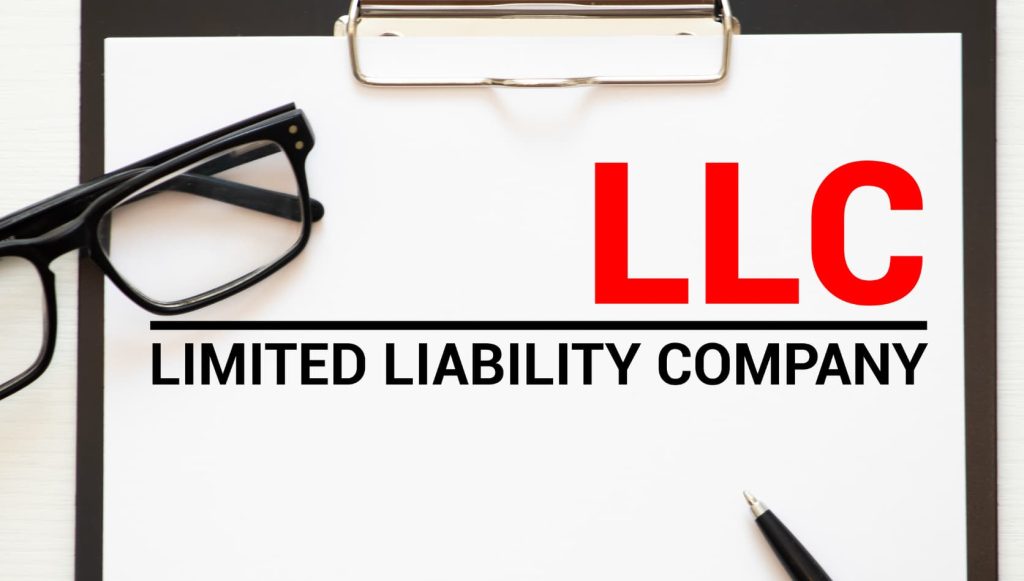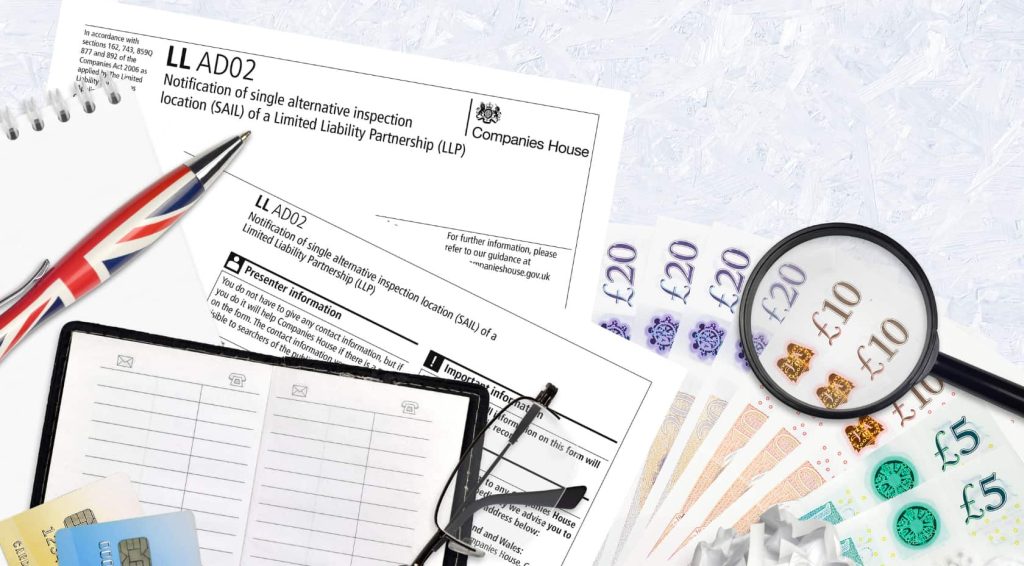Starting an Amazon FBA business is an exciting path to entrepreneurship. However, before you begin selling, it’s essential to consider forming an LLC, or Limited Liability Company. An LLC is a business structure that protects your assets by separating them from your company’s liabilities. This protection is vital in the event of legal issues or business debts.
This guide will explain what an LLC is, its advantages for Amazon sellers, and the steps to set one up. By the end of this article, you’ll have a clear understanding of how an LLC can benefit your Amazon FBA business and the knowledge to establish one.
Whether you’re new to Amazon FBA or looking to formalize your existing operation, this guide is designed to help you lay a solid foundation for your business venture.
Let’s get started on securing your business’s future.
Understanding LLCs

What Does LLC Mean?
A Limited Liability Company (LLC) is a legal entity that provides its members with limited liability protection, which means that the personal assets of the members are protected from the debts and liabilities of the business. LLCs are flexible business structures that can be owned by one or more individuals or entities, and they offer a range of tax benefits.
Advantages of an LLC for Amazon FBA
If you are an Amazon FBA seller, forming an LLC can offer several advantages. The most significant benefit is the limited liability protection that an LLC provides. As an Amazon seller, you may face legal issues or debts within the business, and an LLC can help protect your personal assets from being at risk.
Another advantage of forming an LLC is that it can add credibility to your Amazon seller account. Having an LLC can make your business seem more established and professional, which can help you attract more customers and increase your sales.
LLC vs Sole Proprietorship and Corporations
When it comes to business structures, LLCs offer more flexibility than sole proprietorships and corporations. Sole proprietorships are the simplest business structure, but they do not offer any liability protection. Corporations, on the other hand, offer limited liability protection, but they are more complex to set up and maintain than LLCs.
How to Set Up an LLC for Your Amazon FBA Business

If you’re starting an Amazon FBA business, setting up an LLC can provide many benefits. An LLC can protect your personal assets from business liabilities, reduce your tax burden, and lend credibility to your business. Here’s a step-by-step guide to creating an LLC for your Amazon FBA business:
Choosing a State for Your LLC
The first step in setting up an LLC is choosing the state where you want to form your LLC. You can form an LLC in any state, but most people choose to form their LLC in the state where they live or where their business is located. Each state has its own rules and fees for forming an LLC, so be sure to research the requirements in your chosen state.
Choose a Legal Name for Your Llc
Once you’ve chosen a state for your LLC, you’ll need to choose a name for your business. Your LLC’s name must be unique and not already in use by another business in your state. You can check the availability of your desired name on your state’s business registration website. You may also want to consider securing a domain name for your business website.
Assigning a Registered Agent
Your LLC must have a registered agent, which is a person or entity that is authorized to receive legal documents on behalf of your business. The registered agent must have a physical address in the state where your LLC is formed. You can choose to be your own registered agent, but many people prefer to hire a professional service to handle this responsibility.
Filing Articles of Organization
To form an LLC, you’ll need to file articles of organization with your state’s business registration office. The articles of organization typically include your LLC’s name, address, registered agent information, and the names of the LLC’s members. You’ll also need to pay a filing fee, which varies by state.
Creating an Operating Agreement
Although not required by all states, creating an operating agreement for your LLC is highly recommended. An operating agreement is a legal document that outlines the ownership and management structure of your LLC, as well as the rights and responsibilities of its members. This document can help prevent disputes and misunderstandings among members in the future.
Obtaining an EIN
An EIN, or employer identification number, is a unique nine-digit number that is assigned to your LLC by the IRS. You’ll need an EIN to open a business bank account, hire employees, and file taxes. You can obtain an EIN for free on the IRS website.
Understanding Amazon FBA’s Requirements for LLCs

If you’re planning to sell products on Amazon FBA, you might be wondering whether you need to set up an LLC. While it’s not a requirement, there are several benefits to doing so. However, there are some Amazon-specific considerations you should keep in mind when setting up an LLC for your FBA business.
Amazon FBA Account Setup
When setting up your Amazon FBA account, you’ll need to provide information about your business, including its legal name and tax identification number. If you’ve set up an LLC, you’ll need to provide your LLC’s legal name and EIN (Employer Identification Number). Make sure that your LLC’s name matches the name on your bank account and other business documents.
Compliance Requirements
As an Amazon seller, you’ll need to comply with certain rules and regulations. For example, you’ll need to collect and remit sales tax on behalf of your customers in certain states. If you’re using an LLC, you’ll need to make sure that your LLC is registered to collect sales tax in those states. You’ll also need to keep track of your sales and file regular tax returns.
Limited Liability Protection
One of the main benefits of setting up an LLC for your Amazon FBA business is limited liability protection. This means that if your business is sued, your personal assets (such as your home or car) will generally be protected. However, it’s important to note that limited liability protection isn’t absolute. If you engage in fraudulent or illegal activity, you could still be held personally liable.
Amazon Seller Account Credibility
Having an LLC can also add credibility to your Amazon seller account. It shows that you’re serious about your business and that you’ve taken steps to protect yourself and your customers. This can be particularly important if you’re selling high-value or high-risk products.
LLC Management Tips for Amazon FBA Sellers

As an Amazon FBA seller who has formed an LLC, it’s important to manage your business effectively to stay compliant with state requirements and protect your personal assets. Here are some tips to help you manage your LLC:
Keep Financial Records
Maintaining accurate financial records is crucial for managing your LLC. You should keep track of all income and expenses related to your Amazon FBA business, including product costs, shipping fees, and advertising expenses. You can use accounting software like QuickBooks or Xero to help you keep track of your finances and prepare your tax returns.
Meet State Requirements
Each state has its own requirements for LLCs, so it’s important to stay up-to-date on the regulations in your state. You may need to file an annual report, pay a franchise tax, or renew your LLC status. Make sure you understand the requirements in your state and meet them on time to avoid penalties or the loss of your LLC status.
Renew LLC Status
LLCs typically need to renew their status annually or biennially, depending on the state. You should mark your calendar with the renewal date and make sure you submit the necessary paperwork and fees on time. Failure to renew your LLC status can result in the loss of your liability protection and other benefits of an LLC.
Do I Need a Business License to Sell on Amazon?
When it comes to selling on Amazon, one of the most common questions is whether you need a business license to get started. The answer to this question largely depends on where you live and the type of products you plan to sell.
In general, if you plan to sell products that are regulated by the government, such as food or firearms, you will likely need a business license. Additionally, if you plan to sell products in a specific category, such as toys or electronics, you may need to obtain a license or permit to sell those products.
It’s important to note that Amazon itself does not require sellers to have a business license to sell on the platform. However, you may still need to obtain a license or permit from your local government in order to legally sell products in your area.
To determine whether you need a business license to sell on Amazon, it’s best to check with your local government. You can typically find information on licensing requirements on your city or state’s website, or by contacting your local business licensing office.
Explore comprehensive insights with this thorough guide: [2024] Do You Need a Business License to Sell on Amazon?
What Tax Issues to Consider as an LLC for Amazon FBA?
When it comes to running an Amazon FBA business as an LLC, there are certain tax issues you need to consider. Here are some important factors to keep in mind:
1. Pass-Through Taxation
One of the main benefits of forming an LLC for your Amazon FBA business is pass-through taxation. This means that the LLC itself is not taxed on its income, but the profits and losses are passed through to the individual members, who report them on their personal tax returns. This can result in lower overall taxes for the business.
2. Self-Employment Taxes
As an LLC owner, you are considered self-employed and must pay self-employment taxes on your share of the LLC’s profits. This includes both the employer and employee portions of Social Security and Medicare taxes. It’s important to factor these taxes into your business plan and budget accordingly.
3. State Taxes
LLCs are subject to state taxes, which vary depending on the state where the business is located. Some states have a flat tax rate, while others have a progressive tax rate based on income. It’s important to research the tax laws in your state and consult with a tax professional to ensure compliance.
4. Sales Tax
If you sell products on Amazon FBA, you may be responsible for collecting and remitting sales tax to the appropriate states. Each state has its own sales tax laws and requirements, so it’s important to stay up-to-date and ensure compliance. Consider using a service like TaxJar to automate the process and reduce the risk of errors.
Financial Management and Taxation
As an Amazon FBA seller, it is important to have a solid understanding of financial management and taxation. This section will cover some key aspects of financial management and taxation that are crucial for LLCs operating an Amazon FBA business.
Opening a Business Bank Account
Opening a business bank account is an essential step in managing your finances. It helps keep your personal and business finances separate, making it easier to track your income and expenses. When opening a business bank account, you will need to provide your EIN (Employer Identification Number) and other relevant information.
Understanding Sales Tax and Nexus
Sales tax is a tax on sales of goods and services. As an Amazon FBA seller, you are responsible for collecting and remitting sales tax on your sales. Understanding sales tax and nexus is crucial, as it determines whether you are required to collect and remit sales tax in a particular state. Nexus refers to the connection between your business and a state that triggers a sales tax obligation.
Tax Benefits and Pass-Through Taxation
One of the main benefits of operating as an LLC is pass-through taxation. This means that the LLC itself does not pay federal income taxes. Instead, the profits and losses of the LLC are passed through to the owners, who report them on their personal tax returns. This can result in significant tax savings for LLCs.
Annual Reporting and Tax Returns
LLCs are required to file an annual report with the state they are registered in. This report typically includes basic information about the LLC, such as its name and address. Additionally, LLCs are required to file a tax return with the IRS. The type of tax return that an LLC files depends on its classification for tax purposes.
Conclusion and Next Steps for Setting Up Your Amazon FBA LLC
Congratulations! You are now equipped with the knowledge to set up an LLC for your Amazon FBA business. Here are the key takeaways from this article:
- An LLC provides personal asset protection and tax advantages for your Amazon FBA business.
- You will need to choose a unique name for your business, file formation documents with your state, and obtain necessary licenses and permits.
- You should consider hiring a registered agent to receive legal documents on behalf of your business.
- You will need to obtain an EIN from the IRS to open a business bank account and file taxes.
- You should create an operating agreement to outline the ownership and management structure of your LLC.
To get started with setting up your Amazon FBA LLC, follow these steps:
- Choose a unique name for your business that is not already in use by another company in your state of formation.
- File formation documents with your state and obtain necessary licenses and permits.
- Consider hiring a registered agent to receive legal documents on behalf of your business.
- Obtain an EIN from the IRS to open a business bank account and file taxes.
- Create an operating agreement to outline the ownership and management structure of your LLC.
Remember, setting up an LLC for your Amazon FBA business is an important step in protecting your personal assets and establishing a professional image for your business. If you have any questions or need further assistance, consider consulting with a professional who specializes in LLC formation. Good luck and happy selling!
Frequently Asked Questions
Is LLC Required for Amazon FBA?
No, an LLC is not required to start an Amazon FBA business. However, forming an LLC can provide several benefits, such as protecting your personal assets from business liabilities, adding credibility to your business, and simplifying your tax reporting process.
What is the Best State for Amazon FBA LLC?
The best state for an Amazon FBA LLC depends on your individual circumstances, such as where you live, where you conduct business, and what your tax obligations are. Some popular states for forming an LLC include Delaware, Wyoming, and Nevada, due to their favorable tax laws and business-friendly regulations. However, it’s important to consult with a tax professional or attorney to determine the best state for your specific needs.
Do I Need an LLC to be An Amazon Affiliate?
No, you do not need an LLC to be an Amazon affiliate. As an Amazon affiliate, you are essentially promoting Amazon products and earning a commission for any resulting sales. However, if you plan on selling your own products through Amazon FBA, forming an LLC may be beneficial.
What Business Type Should I Choose on Amazon FBA?
When setting up your Amazon FBA business, you will need to choose a business type, such as sole proprietorship, partnership, LLC, or corporation. The best business type for you depends on your individual circumstances, such as your liability concerns, tax obligations, and business goals. It’s important to consult with a tax professional or attorney to determine the best business type for your specific needs.
Does LLC mean Private or Public?
An LLC, or limited liability company, is a private business entity. This means that the company is owned by its members and is not publicly traded on the stock market. The main advantage of an LLC is that it provides limited liability protection for its members, meaning that their personal assets are protected from business liabilities.



